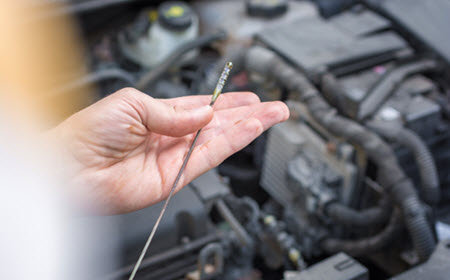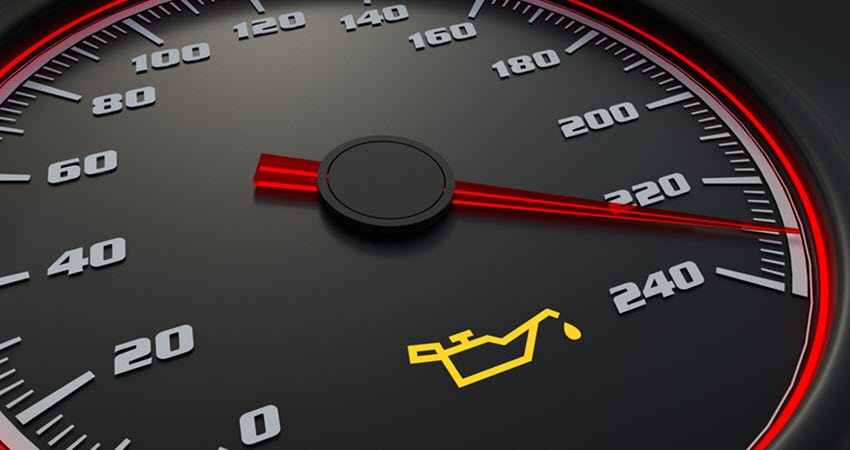When dealing with low oil pressure in your BMW, you will begin to notice a few concerning changes in your driving experience. The smooth, comfortable ride that you’re used to in such a high-quality car is due in large part to the engine. Low pressure directly affects your engine and can lead to expensive repairs if the root of the issue is not found and repaired as soon as possible.
This article will break down the effects that low oil pressure can have on a BMW’s engine and what to do when you notice the warning signs that come with this problem, so stick around!
Causes of Low Oil Pressure
In order to truly get to the root of the problem, you must first understand why the oil pressure in the engine may be low. Each cause presents unique challenges and requires specific repairs.
- Low oil level is the most common and most obvious cause of low pressure. As you drive, oil is used up over time and needs to be replaced at regular intervals. When your oil is low, the pressure drops. If you have topped off your engine oil recently, the problem may be an oil leak.
- Old engine oil could cause low pressure in your BMW’s engine because it loses its viscosity over time. Thin oil reduces pressure.
- Overheating of the engine may cause the oil to thin out and decrease pressure the same as worn engine oil might. High temperatures and overuse changes the viscosity of the oil.
- Worn bearings and valves fail and can cause oil to leak and they often prevent proper flow of oil through the engine, causing pressure to drop.
Consequences of Low Oil Pressure on BMW Engines
No matter which of the reasons above are to blame, the effects of this low pressure are the same on your engine.
- The pressure gauge reads lower while you’re idling. This is a more visible sign that something is wrong, so it’s essential that you pay close attention to any changes in gauges on the dashboard.
- Difficulty in starting the engine is another red flag that may indicate low oil pressure. While this issue can stem from several part failures, low pressure is a likely culprit.
- Reduced performance and power while driving can indicate issues with oil pressure. Oil is a crucial part of engine performance. It properly lubricates all parts and keeps things running smoothly.
- Rattling noises may begin coming from the engine while you drive. This is perhaps one of the more concerning signs. The longer you ignore these sounds, the more damage your engine may accrue.
- If the low pressure is due to low oil levels or a leak, your engine may overheat. Overheating increases the likelihood of multi-part failure as they are prematurely worn by the high temperatures.
Preventing Low Oil Pressure
Sometimes it is difficult to catch issues like these early, but you do have the power to prevent them from happening so soon.
Regular maintenance is key to a healthy engine. Always familiarize yourself with your driver’s manual and learn when you should top off or change your oil . That reduces the risk of low pressure greatly on its own.
It’s also important to have your BMW regularly inspected for damage so you can catch oil leaks and worn parts early. Having them replaced sooner rather than later saves money and precious time.
Engine Repair from the Professionals
BMWs are complex vehicles, and they require special care and attention to detail. Not every mechanic is trained to deal with the issues that are common to these foreign cars. You need BMW experts if you want expert service and repairs, and that is exactly what the technicians at Professional Automotive will provide.
Our main focus is providing professional service while staying up-to-date on the latest innovations in BMW vehicles. We are honest with customers about the services they need and how much these services will cost. Dealerships and other repair shops aren’t always upfront about their work, but then you trust the team at Professional Automotive, you’ll never have to worry about that.
We serve drivers in Marlborough, MA and surrounding areas. Come in or call to make an appointment today.
 Mon - Fri: 7:30 am - 5:30 pm
Mon - Fri: 7:30 am - 5:30 pm 19 Mechanic St,
19 Mechanic St, (508) 485-8633
(508) 485-8633
